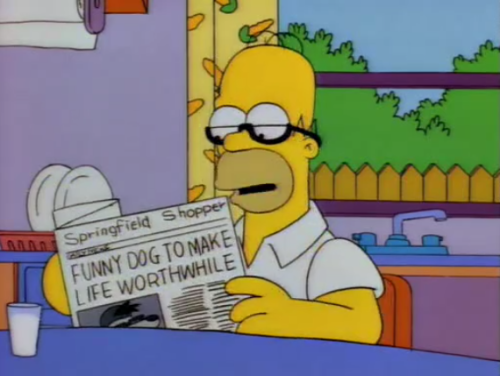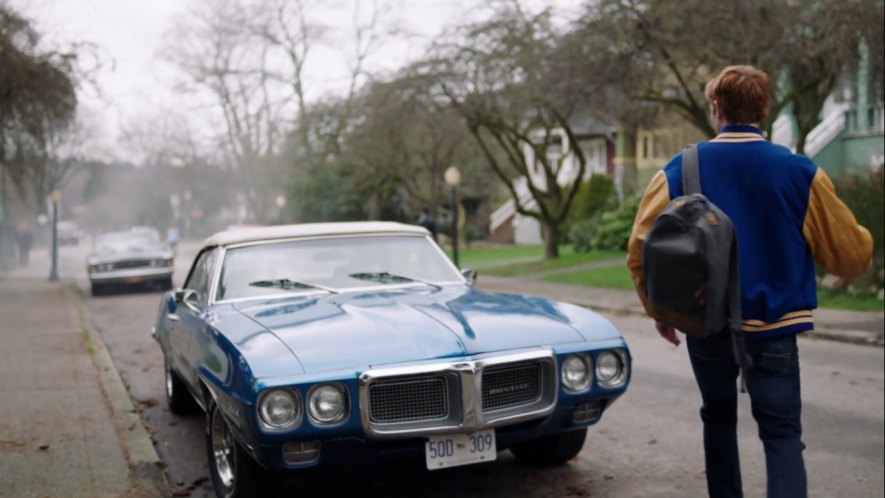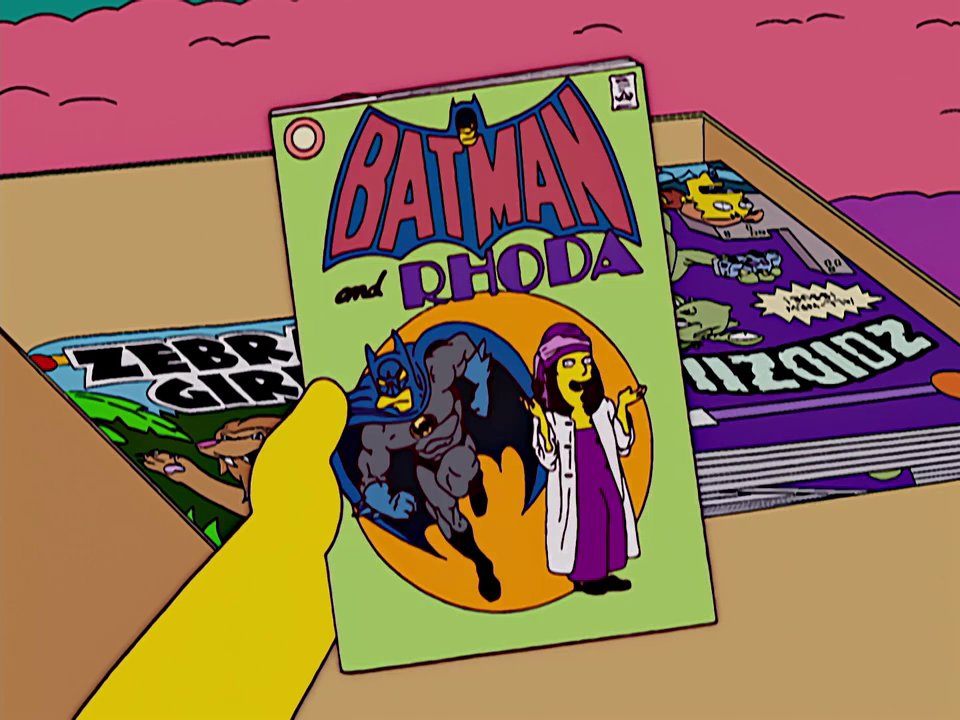This, of course, is not an example.
DON'T MENTION ANY "NEWEST THING"S WHATSOEVER
That's a general rule of thumb if you want your script to endure for years after the fact, but culture as a whole is ever-changing, so stating something as definitely "new", "latest", or any other term subject to redefinition is best avoided. (Unless you can lampshade it with a character saying an actually-old thing is new, for example.)
GO FOR MORE RETRO STYLES AND DESIGNS
The lens of cultural hindsight helps to "edit" the trends, styles, aesthetics, and other visuals from the past into those that have stood the test of time. (Notice how 70s shag carpets have typically been seen now in either parodies or period pieces?) This is especially useful with teenagers and young adult characters, given how modern trends for those demographics arguably shift faster than most. It's usually best in my opinion to aim for a more "classic" look, or at least one largely detached from the most unusual of modern trends.
Riverdale combines its source material's 50s and 60s
aesthetic with modern technology and even older cars.
(Also, notice how their license plate design isn't far off
from B.C.'s main design, to keep continuity.)
Of course, it's also important to remember that much of these historical trends have been dictated by white and Eurocentric standards, so it would be very different if your script features a cultural aesthetic that's been historically marginalized and erased.
DON'T SHOW SUPER-MODERN TECH (OR MOST TECH AT ALL) ONSCREEN
This will depend on how technology-dependent your script's story is in general, but with cell phones now being ubiquitous, the audience can typically assume a character has tried reaching another character's cell phone when trying to get a hold of them. And of course, newer technology often dates badly in even a decade's time, especially if a given format or method proves to be short-lived.
As much as Lisa's Kodak Disc Camera would make
a killing selling to the retro enthusiast crowd today,
it's unlikely to be available at your nearby Walmart.
Also, keep in mind how many social situations, plots, and other script scenarios have been changed dramatically in the past 10-15 years due to cell phones, since this will affect your audience's suspension of disbelief towards a story set today.
MIND YOUR LANGUAGE
Any given "Bad Writing" video on Riverdale will show just how every character will spout hashtags, jargon, and vernacular that no real-life teenager would ever say with a straight face. Aiming for heightened cartoon reality is one thing, but like just about everything else largely to do with the internet, hashtags, like other forms of language, is subject to fast change, so (with your intended tone in mind), decide what's being said, how it's being said, who is saying it, and if you can rephrase it to date less badly (and to sound more, well, human). Or, if you're incorporating slang, consider where it's coming from. The internet changes fast, but dialects/slang/phrases from a culture that's genuinely your own will likely stand the test of time far longer.
As for this? Well, it is one of the more normal dialogues from this show.
Given Mr. Burns' ethics, this itself would have been dated in the 1920s.
What themes does your story take shape with? I made a similar point in my "Adaptations" post, but if being timeless is a key aim with your script, consider your script's themes and how they relate to the human condition. Is your script about love? Anger? Grief? Jealousy?
That's not to say some themes are inherently "better" than others, in fact, most emotional cores date back about as far as the written word itself (warfare, spiritual journeys and self-discovery, "the quest", etc.). But at least in terms of universality, coupled with the relationship moviegoers have historically had with the medium, the themes of love, family, fear, the dark side of humanity, escapism, and humor are some themes that have endured, along with keeping their wide audiences.
Also, it's never a bad thing to be progressive with your script as well, as it's a good "cheat" to avoid dating it, even for just a little bit of time.
Pictured: Awesome, but very dated.
So all in all, while not completely foolproof, aiming for timelessness will help your audience further latch onto your story and what you want to do with it.
Getting dead goldfish out of your disco shoes, however?
Not quite my area of expertise.









No comments:
Post a Comment